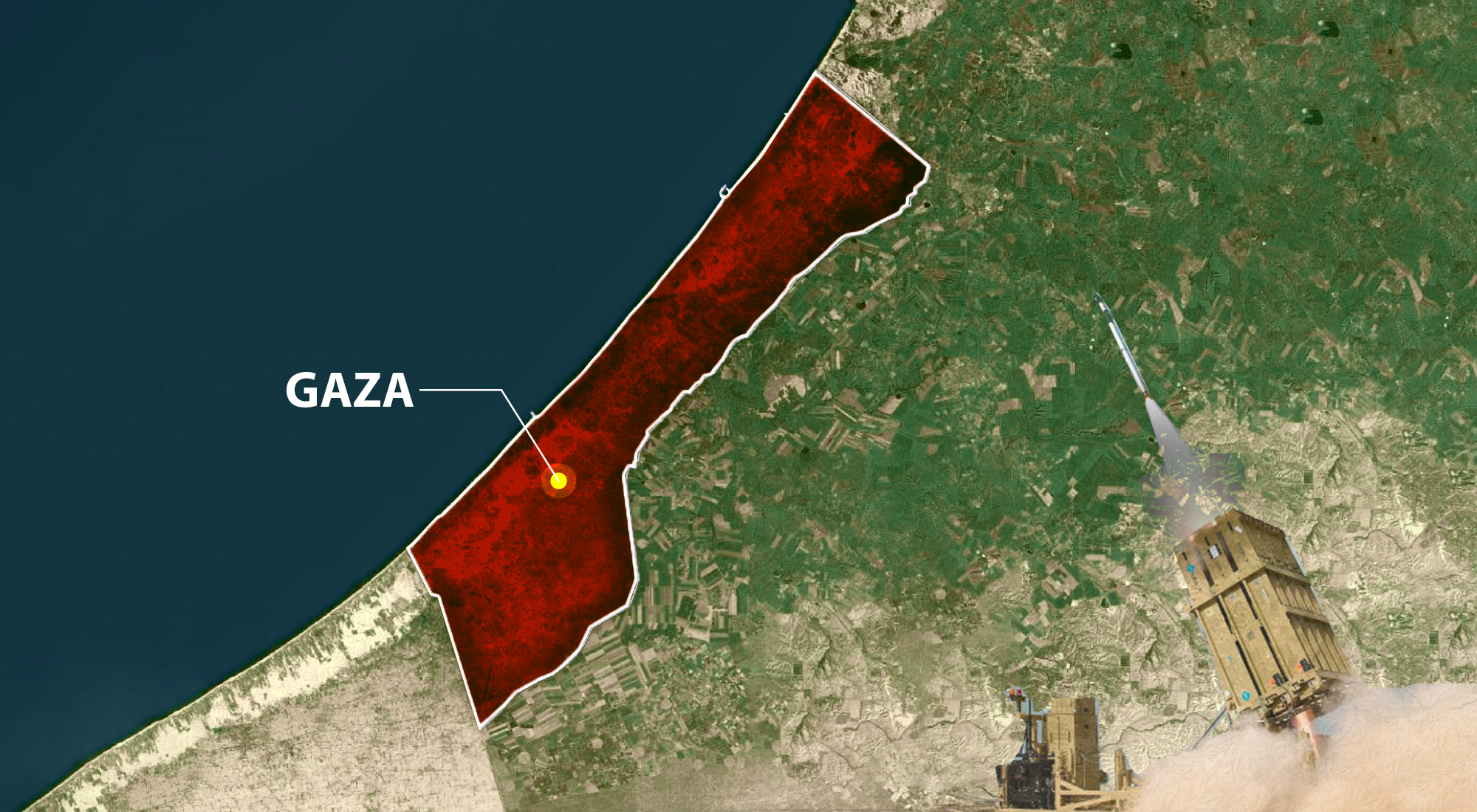Introduction
The recent attack by Hamas against Israel has plunged the region into turmoil, with significant implications for global security. The episode, marking the most severe in half a century over the course of the conflict, resulted in a high casualty toll on both sides, including Arab, Israeli and U.S. civilians, and raised concerns about the potential for a broader regional escalation. The Gulf Cooperation Council (GCC) has strongly condemned Israel’s disproportionate and indiscriminate attacks in Gaza, leading to mass casualties including women and children. The timing of the attack is believed to be related the 50th anniversary of the 1973 Arab-Israeli war, also known as the Yom Kippur War. However, what makes this situation even more remarkable is the fact that it took Israel, known for its advanced security infrastructure and intelligence capabilities, by surprise. The disastrous outcome prompts serious questions about obstacles to adequate intelligence to support decision-makers before and during an attack.
Historical Parallels: Lessons from the Past
When assessing the failure to anticipate the Hamas attack, one cannot help but draw parallels to historical cases, such as Pearl Harbor (1941), the 9/11 attacks (2001), and the Yom Kippur War (1973). These events, though distinct in nature, share common features, notably the difficulty of identifying warning signs. Because such attacks, or “crises,” are unexpected, context-specific intelligence is in short supply. The analysis of an adversary’s intentions and capabilities should be based on a prioritized list of telltale indicators that harness information from watch lists, surveillance, and warning systems, coupled with robust communication protocols that alert decision-makers to potential threats in a timely and reliable manner. The axiom of intelligence is that one should know everything it can about its adversaries; decision-making should be based upon a reflection of reality.
The history of surprise attacks demonstrates that the assessment of relevant intelligence generated by agencies and its translation into effective policy are far more complex than simply having access to information. The recent Hamas attacks, similar to 9/11, came as a surprise and were widely perceived as an intelligence failure on Israel’s part. However, it might be premature to label them as such at this point. The pre-crisis phase is the most difficult challenge for intelligence due to ambiguity, uncertainty, and pressures under which decision-makers must quickly debate the situation and move on to action.
Although Israel’s internal security service, Shin Bet, claimed responsibility for the failure, signs of concern the night before the attack that led to a phone conversation among various branches of the security establishment reportedly ended with a decision “not to raise the alert level”. Whether Israeli Prime Minister Benjamin Netanyahu took part in or was informed of that decision is unclear. Just as in the U.S., where signs of Al-Qaeda’s intentions fell through cracks due to over-compartmentalization, information overload, and bureaucratic politics – revealed by long investigations after the attacks – one might only learn about the intelligence available to Israel’s policymakers in the months or even years to come. In the aftermath of major crises or security threats, it is common for policymakers to deflect blame by pointing to a lack of intelligence as the root cause. Shin Bet’s acceptance of failure to give sufficient warning of an attack might be aimed at saving Israeli PM Netanyahu from culpability.
A Failure to Warn or a Failure to Act?
The intelligence failure in Israel raises fundamental questions about whether it was primarily a failure to warn or a failure to act. While intelligence agencies are responsible for providing warnings, policymakers play a critical role in responding to these intelligence alerts. Good two-way communication between decision-makers and intelligence providers is essential both for understanding crisis conditions and for conducting successful crisis management operations. The greater the time available to develop situational awareness, the greater the influence of the intelligence bureaucracy becomes. Investigating the underlying causes of the failure and addressing these questions is crucial to uncover mistaken assumptions about crisis readiness.
In the case of Israel, this could mean that intelligence agencies either failed to detect Hamas’s intentions or activities leading up to the attack or they deemed them inadequate/unimportant to raise the alert level. The causes of such intelligence failures may vary, including limitations in information sources, analytical shortcomings, or miscommunication within the intelligence community. Even if intelligence agencies provide accurate warnings, policymakers have the responsibility to act upon that information.
This involves making decisions on how to respond to the threat while taking into consideration the gravity of the threat, the available resources, and the political and diplomatic implications of various courses of action. Responding to intelligence warnings is often a complex decision-making process. Policymakers need to assess the credibility of the intelligence, weigh the potential costs and benefits of various response options, and consider the broader strategic context. This complexity can sometimes lead to delays in decision-making.
Recognizing Discontinuous Change
One aspect that intelligence agencies often grapple with is recognizing “discontinuous change” in an adversary’s behavior. When Hamas shifted its tactics dramatically, the challenge for Israeli intelligence agencies was magnified. The armed group’s newfound sophistication seems to have caught Israeli authorities off guard. Taking lessons of this case, the world intelligence community should consider to re-prioritize crisis gaming, simulations, and imagination to increase agility and avoid the trap of cultural asymmetry that might be prevalent in their organizations.
Hamas employed a careful campaign of deception, projecting the impression that it was not willing to go into a fight or confrontation with Israel while preparing for the massive operation. This tactic misled Israeli intelligence and contributed to the surprise of the attack. Even in plain sight, as Hamas was training for the attack, Israeli intelligence misread this training as posturing. The Israeli army may also have been overconfident in its abilities and reputation, leading it to underestimate the capabilities of Hamas.
This complacency, hubris, and group-thinking psychology in Israel that disregards valuable intelligence further contributed to the failure. Israel might have become accustomed to dealing with shorter-range rocket attacks from Gaza, leading to a dangerous sense of security that the country was adequately prepared for any threat. The belief that previous attacks were relatively small-scale may have led to a lack of preparedness for a larger, more sophisticated assault with greater intensity.
Another argument is that Israel is stretched over multiple theaters of engagement, from Gaza to the West Bank and Syria to Lebanon, accompanied by information overload and a lack of attention to unconventional threats, shifting attention away and clogging the policy-making system. Policymakers should avoid extremes of pre-mature cognitive closure and analysis-paralysis situation.
Domestic Politics: A Contributing Factor
The impact of domestic politics on perceptions and actions should not be underestimated. Israel’s domestic political crisis may have played a role in the success of Hamas’s attack, potentially distracting the government from recognizing the impending threat. The ongoing political turmoil in Israel, including the formation of a unity government to oversee the war sparked by the crisis, could have diverted the government’s attention and resources away from addressing the security situation effectively.
Some analysts have argued that a significant part of the blame lies with Prime Minister (PM) Netanyahu, who had a strategic approach of keeping a relatively strong Hamas on Israel’s southern flank. In reality, Hamas only emerged after the First Intifada in 1987 and derailed the Israeli-Palestinian peace process. Yaser Arafat’s Palestinian Liberation Organization (PLO) was ready to implement a peace deal with Israel after the Oslo Accords (1993-1995), but due to a bitter internal struggle with Hamas and subsequent wars over Gaza, the Palestinian cause has seen its legitimacy erode in the eyes of the world.
Netanyahu’s approach was aimed at preventing international pressure to resume peace talks by sowing discord among and dividing an otherwise unified Palestinian front. There is uncertainty regarding Hamas’s specific strategic objectives with the recent attack, raising the possibility that the group act as spoilers for a negotiated settlement, akin to far-right extremists in Israel’s history. However, this attack has come at a time of rising global support for the Palestinian cause, potentially damaging it.
The misguided belief that an “omnipresent” Hamas could help maintain the status quo and offer an acceptable level of security for Israel is said to have ultimately contributed to the failure to provide timely, reliable information about the onset of an attack and the failure of Israeli policymakers to make use of available intelligence. According to polls, 80% of Israelis believe that Netanyahu has at least some responsibility to bear for this disaster. Just like Ehud Olmert was forced to leave in 2008 due to corruption allegations and the way he handled the war against Hezbollah in Lebanon, Hamas’s attack might have negative implications for Netanyahu’s political future.
Technology in Intelligence Gathering
While technology plays a significant role in intelligence gathering, it is imperative to strike a balance between using new tools and assessing an adversary’s will to fight. Big data and the proliferation of social networking bring new challenges to picking the right information, analyzing it, and making it actionable. Relying solely on quantitative information like in failures of counterinsurgency in Iraq and Afghanistan can lead to vulnerabilities in modern warfare.
Hamas’s operational security and the use of low-tech communication methods played a role in evading detection. The attackers may have received minimal advance notice and operated close to their homes. The attack involved disabling surveillance cameras, electronic warfare, and a combined-arms approach.
A significant part of the failure on Israel’s part is linked to the extensive array of electronic sensors, surveillance systems, and human intelligence, which was the responsibility of the army’s intelligence branch, Aman, and the domestic security service, Shin Bet, that oversees Gaza. This, along with the failure involved in misinterpreting or ignoring the information collected, might have led to an incorrect assessment of Hamas’s intentions. Sourcing experts with diverse skills and backgrounds to harness different capabilities, hear divergent viewpoints, and a thoughtful process of analyzing information to generate actionable insights is at least as important as signals intelligence.
Investigating Failures: Learning from Mistakes
The “surprise attack” underscores the importance of comprehensive investigations into the intelligence failure in Israel. At the same time, understanding what Hamas did right in keeping its attack a secret is equally critical. These investigations serve as valuable lessons, not only for Israel but also for the rest of the world in navigating today’s complex threat landscape. The failure to anticipate such a significant attack will likely lead to independent inquiries and a reassessment of security and homeland defense approaches, possibly leading to a cabinet shift or yet another general election in Israel.
When the dust settles, the Israeli public will likely demand accountability. Only time will tell if the Israeli government will fulfil this demand by providing a clear account of the intelligence available and its relevance to the security situation at the time. Just as in other surprise attacks, it is often easier to identify the “signals” in intelligence information after the fact, but this requires critical analysis and honest self-reflection.
Israel’s intelligence failure has implications that extend beyond its borders. The U.S., Israel’s fervent ally, also appeared unaware of the impending attack, raising questions about the state of intelligence-sharing between the two nations. However, Michael McCaul, the chair of the U.S. House foreign affairs committee, said that Israel had received an official warning from Egypt of a possible attack from Gaza three days before the incident, which Netanyahu declared as “false”.
Conclusion
The state will remain the most important intelligence actor in the twenty-first century. To achieve optimal interagency cooperation, a “smart” government should be ready to tackle the real management challenges of non-traditional warfare, prevent bureaucratic competition between agencies and unnecessary duplication of effort. Israel’s experience underscores the critical importance of accurate intelligence assessments and the perils of underestimating one’s adversaries. Intelligence failures and strategic surprises can have far-reaching consequences, impacting not only military operations but also diplomacy, international standing, and the overall pursuit of peace in the region. Learning from these experiences is essential to enhance preparedness and the ability to address challenges that a country might face in today’s complex domain of fifth generation warfare.
Bibliography:
Ali, Javed “How did Israeli intelligence miss Hamas’ preparations to attack? A US counterterrorism expert explains how Israeli intelligence works,” The Conversation, October 11, 2023, https://theconversation.com/how-did-israeli-intelligence-miss-hamas-preparations-to-attack-a-us-counterterrorism-expert-explains-how-israeli-intelligence-works-215410
Asharq Al-Awsat, “GCC Secretary General Condemns Israel’s’ Bombing of Al-Ahli Baptist Hospital in Gaza”, 18 October 2023, https://english.aawsat.com/gulf/4612056-gcc-secretary-general-condemns-israels%E2%80%99-bombing-al-ahli-baptist-hospital-gaza.
BBC, “Egypt warned Israel days before Hamas struck, US committee chairman says,” October 13, 2023, https://www.bbc.com/news/world-middle-east-67082047.
Bob, Yonah Jeremey, “Hamas attack: The greatest intelligence failure in Israeli history? -analysis How did Israel fall so far to such an inferior enemy?,” The Jerusalem Post, October 10, 2023, https://www.jpost.com/israel-news/article-765254.
Burgess, Matt and Lily Hay Newman, “Israel’s Failure to Stop the Hamas Attack Shows the Danger of Too Much Surveillance,” Wired, October 8, 2023, https://www.wired.co.uk/article/israel-hamas-warsurveillance#:~:text=Colin%20Clarke%2C%20the%20director%20of,and%20communications%20data%20is%20collected.
Byman, Daniel “An Intelligence Failure in Israel, but What Kind?,” Lawfare, October 10, 2023, https://www.lawfaremedia.org/article/an-intelligence-failure-in-israel-but-what-kind
De Luce, Dan, Ken Dilanian and Courtney Kube, “How did Israel and the U.S. miss what Hamas was planning?,” NBC News, October 7, 2023, https://www.nbcnews.com/news/investigations/israel-us-miss-hamas-was-planning-rcna119335.
The Economist, “Hamas’s attack was an Israeli intelligence failure on multiple fronts,” October 9, 2023, https://www.economist.com/middle-east-and-africa/2023/10/09/hamass-attack-was-an-israeli-intelligence-failure-on-multiple-fronts.
Grossfeld, Elena “What Israeli Intelligence Got Wrong About Hamas,” Foreign Policy, October 11, 2023, https://foreignpolicy.com/2023/10/11/israel-intelligence-gaza-hamas-war-1973/.
The Guardian, “Olmert announces resignation as Israeli prime minister”, July 30, 2008, https://www.theguardian.com/world/2008/jul/30/israelandthepalestinians1.
Haass, Richard “An Israeli Dilemma”, Council on Foreign Relations, October 11, 2023, https://www.cfr.org/article/israeli-dilemma.
Harding, Emily “How Could Israeli Intelligence Miss the Hamas Invasion Plans?,” Center for Strategic and International Studies, October 11, 2023, https://www.csis.org/analysis/how-could-israeli-intelligence-miss-hamas-invasion-plans.
Harel, Amos “Israeli Army’s Top Brass Received Troubling Info Night Before Hamas Attack”, Haaretz, October 12, 2023, https://www.haaretz.com/israel-news/2023-10-12/ty-article/.premium/israeli-armys-top-brass-received-troubling-info-night-before-hamas-attack/0000018b-24e2-d680-af9b-26eed7b10000.
Hoffman, Bruce and Jacob Ware, “Israel’s 9/11? How Hamas Terrorist Attacks will change the Middle East,” War on the Rocks, October 10, 2023, https://warontherocks.com/2023/10/israels-9-11-how-hamas-terrorist-attacks-will-change-the-middle-east/.
McCarthy, Shaun P., The Function of Intelligence in Crisis Management, Routledge, p. 26, 44, 1998, https://www.routledge.com/The-Function-of-Intelligence-in-Crisis-Management-Towards-an-Understanding/McCarthy/p/book/9781138351547.
McLaughlin, John E. “Why Did Israeli Intelligence Fail? History Suggests Many Causes,” The Cipher Brief, October 10, 2023, https://www.thecipherbrief.com/why-did-israeli-intelligence-fail-history-suggests-many-causes
Mekelberg, Yossi, “The Hamas attack is a dark day for Israel’s intelligence services,” Chatham House, October 8, 2023, https://www.chathamhouse.org/2023/10/hamas-attack-dark-day-israels-intelligence-services.
Pillar, Paul, “The Hamas Attack and the Failure to Understand ‘Intelligence Failures,’” The National Interest, October 12, 2023, https://nationalinterest.org/blog/paul-pillar/hamas-attack-and-failure-understand-%E2%80%9Cintelligence-failures%E2%80%9D-206921
Taylor, S. and T. Ralston, “Avoiding War: Problems of Crisis Management,” pp. 398, 400, 409, 1991, https://searchworks.stanford.edu/view/1734790.
Walton, Caldor, “Four paths to Israel’s intelligence failure,” Engelsberg Ideas, October 12, 2023, https://engelsbergideas.com/notebook/four-paths-to-israels-intelligence-failure/
Yarhi-Milo, Keren and Tim Naftali, “The Lessons Israel Failed to Learn From the Yom Kippur War Gathering the right intelligence isn’t always enough,” The Atlantic, October 13, 2023, https://www.theatlantic.com/ideas/archive/2023/10/israel-yom-kippur-war-lessons-hamas/675627/.
Zegart, Amy, “Israel’s Intelligence Disaster How the Security Establishment Could Have Underestimated the Hamas Threat,” Foreign Affairs, October 11, 2023, https://www.foreignaffairs.com/middle-east/israels-intelligence-disaster.








